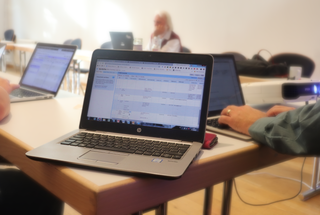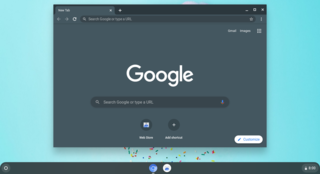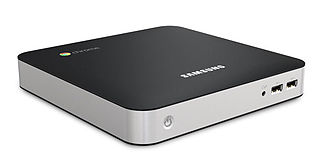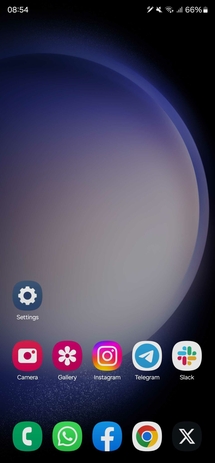This article has multiple issues. Please help improve it or discuss these issues on the talk page . (Learn how and when to remove these messages)
|
The hardware generation and Linux kernel version [1] of most products can be inferred from the code name [2] and its corresponding video game series[ citation needed ]:
| Architecture | Game series | Characters |
|---|---|---|
| Bay Trail | Donkey Kong | Rambi, Swanky, Quawks,... |
| Haswell | Star Fox | Slippy, Falco, Peppy,... |
| Broadwell | Final Fantasy X | Auron, Paine, Yuna, Rikku,... |
| Available | Brand | Model | Code name [lower-alpha 1] [3] | Processor | RAM | Screen | Resolution | Weight | Internal Storage | WWAN | Touch screen | Android Apps [lower-alpha 2] | Convertible | Earliest EOL [lower-alpha 3] !|title of column ?!title of column ?| | ||
|---|---|---|---|---|---|---|---|---|---|---|---|---|---|---|---|---|
| December 2010 [3] | Cr-48 | Mario | Atom N455 | 2 GB | 12.1 in (30.7 cm) | 1280×800 | 3.80 lb (1.7 kg) | 16GB SATA SSD | 3G | No | December 2015 [4] | |||||
| June 2011 [3] | Samsung | Series 5 | Alex | Atom N570 | 2 GB | 12.1 in (30.7 cm) | 1280×800 | 3.06–3.26 lb (1.4–1.5 kg) | 16GB SSD | Optional | June 2016 [lower-alpha 4] [4] | |||||
| August 2011 [3] | Acer | AC700 | ZGB | Atom N570 | 2 or 4 GB | 11.6 in (29.5 cm) | 1366×768 | 3.19–3.20 lb (1.4–1.5 kg) | 16GB SSD | Optional | August 2016 [4] | |||||
| May 2012 [3] | Samsung | Series 5 550 | Lumpy | Celeron 867 Core i5-2467M | 4 GB (upgradeable to 16 GB [5] ) | 12.1 in (30.7 cm) | 1280×800 | 3.02 lb (1.4 kg) | 16GB SSD | Optional | May 2017 [4] | |||||
| October 2012 [3] | Samsung | Series 3 | Snow (Daisy) | Exynos 5 Dual | 2 GB | 11.6 in (29.5 cm) | 1366×768 | 2.43 lb (1.1 kg) | 16GB SSD | Optional | July 2018 [4] | |||||
| November 2012 [3] | Acer | C710 | Parrot | Celeron 847 Celeron 1007U | 2 or 4 GB (upgradeable to 16 GB [5] ) | 11.6 in (29.5 cm) | 1366×768 | 3.04–3.20 lb (1.4–1.5 kg) | 320GB HDD | November 2017 [4] | ||||||
| January 2013 [3] | Lenovo | ThinkPad X131e | Stout | Celeron 1007U | 4 GB | 11.6 in (29.5 cm) | 1366×768 | 3.92 lb (1.8 kg) | 16GB SSD | February 2018 [4] | ||||||
| February 2013 [3] | HP | Pavilion Chromebook | Butterfly | Celeron 847 | 2 or 4 GB | 14 in (35.6 cm) | 1366×768 | 3.96 lb (1.8 kg) | 16GB SSD | February 2018 [4] | ||||||
| February 2013 [3] | Pixel (2013) | Link | Core i5-3427U | 4 GB | 12.85 in (32.6 cm) | 2560×1700 | 3.35 lb (1.5 kg) | 32 or 64 GB SSD | Optional | Yes | April 2018 [4] | |||||
| October 2013 [3] | HP | Chromebook 11 | Daisy Spring | Exynos 5 Dual | 2 GB | 11.6 in (29.5 cm) | 1366×768 | 2.26 lb (1.0 kg) | 16GB eMMC | Optional | October 2018 [4] | |||||
| October 2013 [3] | HP | Chromebook 14 | Falco | Celeron 2955U | 2 or 4 GB | 14 in (35.6 cm) | 1366×768 | 4.07 lb (1.8 kg) | 16 GB SATA SSD | Optional | November 2018 [4] | |||||
| October 2013 [3] | Acer | C720 | Peppy | Celeron 2955U or Celeron 2957U or Core i3-4005U | 2 or 4 GB | 11.6 in (29.5 cm) | 1366×768 | 2.76 lb (1.3 kg) | 16 or 32GB SSD | November 2018 [4] | ||||||
| November 2013 | Acer | C720P | Peppy & Pepto | Celeron 2955U | 2 or 4 GB | 11.6 in (29.5 cm) | 1366×768 | 2.98 lb (1.4 kg) | Optional | Yes | ? | |||||
| January 2014 [3] | Dell | Dell Chromebook 11 | Wolf | Celeron 2955U | 2 or 4 GB | 11.6 in (29.5 cm) | 1366×768 | 2.90 lb (1.3 kg) | Yes | January 2019 [4] | ||||||
| February 2014 [3] | Toshiba | CB30 | Leon | Celeron 2955U | 2 GB | 13.3 in (33.8 cm) | 1366×768 | 3.30 lb (1.5 kg) | February 2019 [4] | |||||||
| May 12, 2014 [6] | Samsung | Chromebook 2 11.6" | Peach Pit | Celeron N2840 [7] | 2 GB [8] | 11.6 in (29.5 cm) | 1366×768 | 2.60 lb (1.2 kg) | June 2019 [4] | |||||||
| Exynos 5 Octa 5420 [9] | 2 or 4 GB [8] | June 2020 [4] | ||||||||||||||
| Chromebook 2 13.3" | Exynos 5 Octa 5800 [10] | 4 GB | 13.3 in (33.8 cm) | 1920×1080 | 3.10 lb (1.4 kg) | June 2019 [4] | ||||||||||
| June 29, 2014 [3] | ASUS | Chromebook C200 | Squawks | Celeron N2830 | 2 or 4 GB | 11.6 in (29.5 cm) | 1366×768 | 2.5 lb (1.1 kg) | Yes | June 2019 [4] | ||||||
| July 2014 | ASUS | Chromebook C300 | Quawks | Celeron N2830 | 2 or 4 GB | 13.3 in (33.8 cm) | 1366×768 | 3.1 lb (1.4 kg) | Optional (4G) | Yes | August 2019 [4] | |||||
| August 2014 [3] [11] | Lenovo | N20 | Clapper | Celeron N2830 | 2 GB | 11.6 in (29.5 cm) | 1366×768 | 2.8 lb (1.3 kg) | Yes | June 2019 [4] | ||||||
| August 2014 [3] [11] | Lenovo | N20p | Celeron N2830 | 2 GB | 11.6 in (29.5 cm) | 1366×768 | 3.1 lb (1.4 kg) | Yes | Yes | ? | ||||||
| August 2014 [3] [11] | Acer | Chromebook 13 (CB5) | Big | Tegra K1 | 2 GB / 4 GB | 13.3 in (33.8 cm) | 1920×1080 and 1366×768 | 3.31 lb (1.5 kg) | 32 GB | No | No | No | September 2019 [4] | |||
| September 2, 2014 [3] | Toshiba | Chromebook 2 | Swanky | Celeron N2840 | 4 GB | 13 in (33.0 cm) | 1920×1080 | 2.95 lb (1.3 kg) | Yes | June 2020 [4] | ||||||
| October 2014 [12] | Acer | C730 | Gnawty | Celeron N2840 | 2 or 4 GB | 11.6 in (29.5 cm) | 1366×768 | 3.09 lb (1.4 kg) | Yes | August 2019 [4] | ||||||
| October 5, 2014 [13] | HP | Chromebook 11 G3 | Kip | Celeron N2840 | 2 or 4 GB | 11.6 in (29.5 cm) | 1366×768 | 2.83 lb (1.3 kg) | Yes | June 2020 [4] | ||||||
| October 5, 2014 | HP | Chromebook 14 G3 | Blaze | Celeron N2840 | 2 or 4 GB | 14.0 in (35.6 cm) | 1366×768 | 3.4 lb (1.5 kg) | Yes | October 2019 [4] | ||||||
| February 2015 [3] | Acer | C740 | Peppy & Pepto | Celeron 3205U | 2 or 4 GB | 11.6 in (29.5 cm) | 1366×768 | 2.87 lb (1.3 kg) | Yes | June 2021 [4] | ||||||
| November 2015 [3] | Acer | Chromebook 15 (CB3-531) | Banjo | Celeron N2830 | 2 or 4 GB | 15.6 in (39.6 cm) | 1366×768 | 4.85 lb (2.2 kg) | Yes | June 2020 [4] | ||||||
| November 2015 [3] | Acer | Chromebook 15 (CB5-571) | Yuna | Celeron 3205U | 2 GB / 4 GB | 15.6 in (39.6 cm) | 1920x1080 | 4.85 lb (2.2 kg) | Optional | Yes | June 2020 [4] | |||||
| March 2015 [3] [14] | Pixel (2015) | Samus | Intel Core i5-5200U / i7-5500U | 8 GB / 16 GB | 12.85 in | 2560×1700 | 3.3 lb (1.5 kg) | Optional | Yes | Yes | June 2021 [4] | |||||
| March 2015 [3] [14] | ASUS | Chromebook C201 | Veyron Speedy | Rockchip RK3288 | 2 GB / 4 GB | 11.6 in (29.5 cm) | 1366×768 | 2.1 lb (1.0 kg) | Yes | June 2020 [4] | ||||||
| March 2015 [3] [14] | Hisense | C11 | Veyron Jerry | Rockchip RK3288 | 2 GB | 11.6 in (29.5 cm) | 1366×768 | 2.4 lb (1.1 kg) | June 2020 [4] | |||||||
| March 2015 [3] [14] | Hisense | C12 | Rockchip RK3288 | 2 GB | 11.6 in (29.5 cm) | 1366×768 | 2.4 lb (1.0 kg) | June 2020 [4] | ||||||||
| June 2015 [3] | ASUS | Chromebook Flip | Veyron Minnie | Rockchip RK3288 | 2 GB / 4 GB | 10.1 in (25.7 cm) | 1280×800 | 2.0 lb (0.9 kg) | Yes | Yes | Yes | July 2020 [4] | ||||
| October 2015 [15] [16] [17] | Lenovo | 100S Chromebook | Orco | Celeron N2840 | 2 GB / 4 GB | 11.6 in (29.5 cm) | 1366×768 | 2.6 lb (1.2 kg) | September 2020 [4] | |||||||
| October 2015 [15] [16] [17] | Toshiba | Chromebook 2 (2015) | Gandof | Intel Celeron 3215U / Core i3-5015U | 4 GB | 13 in (33.0 cm) | 1920×1080 | 2.95 lb (1.3 kg) | Yes | September 2020 [4] | ||||||
| November 2015 | HP | Chromebook 14 | Falco [ citation needed ] | Intel Celeron N2940 | 4 GB | 14 in (33.0 cm) | 1920×1080 | 3.74 lb (1.7 kg) | ||||||||
| February 2016 [18] | ASUS | C202 | Terra | Intel Celeron N3060 | 2 GB / 4 GB | 11.6 in (29.5 cm) | 1366×768 | 2.6 lb (1.2 kg) | June 2021 [4] | |||||||
| April 2016 [19] | Acer | Chromebook 14 | Edgar | Intel Celeron N3160 | 4 GB | 14 in (35.6 cm) | 1920×1080 and 1366×768 | 3.4 lb (1.5 kg) | 32 GB | No | Yes | No | June 2021 [4] | |||
| "Early 2016" [20] | Samsung | Chromebook 3 | Celes | Intel Celeron N3050 | 2 GB / 4 GB | 11.6 in (29.5 cm) | 1366×768 | 2.53 lb (1.15 kg) | Yes | June 2021 [4] | ||||||
| July 2016 | HP | Chromebook 13 (G1) | Chell | Core m5-6Y57 | 8 GB | 13.3 in (33.8 cm) | 3200×1800 | 2.86 lb (1.3 kg) | No | Yes | November 2022 [4] | |||||
| August 5, 2016 [21] | multiple [lower-alpha 5] | Relm | Intel Celeron N3060 [23] | 2 GB / 4 GB | 11.6 in (29.5 cm) | 1366×768 | 2.71 lb (1.2 kg) non-touch 2.84 lb (1.3 kg) touch | 32 GB | No | Optional | No | |||||
| August 2016 [24] | Acer | Chromebook R13 | Elm | MediaTek M8173C | 4 GB | 13.3 in (33.8 cm) | 1920×1080 | 3.28 lb (1.49 kg) | Yes | Yes | Yes | Yes | September 2021 [4] | |||
| August 2016 | Acer | Chromebook R11 | Cyan [25] | Intel Celeron N3150 | 4 GB | 11.6 in (29.4 cm) | 1366×768 | 2.8 lb (1.27 kg) | Yes | Yes | Yes | No | June 2021 [4] | |||
| January 2017 | ASUS | Chromebook Flip C302 | Cave | Intel Core m3-6Y30 | 4 GB | 12.5 in(31.7 cm) | 1920×1080 | 2.6 lb (1.17 kg) | 64 GB | Yes | Yes | Yes | Yes | Yes | September 2022 [4] | |
| January 2017 | Samsung | Chromebook Plus | Kevin | Rockchip RK3399 ARM hexacore CPU | 4 GB | 12.3 in (31.2 cm) | 2400×1600 | 2.38 lb (1.08 kg) | 32 GB | Yes | Yes | Yes | Yes | No | August 2023 [4] | |
| May 2017 | Samsung | Chromebook Pro | Caroline | Intel Core m3-6Y30 | 4 GB | 12.3 in (31.2 cm) | 2400×1600 | 2.38 lb (1.08 kg) | 32 GB | Yes | Yes | Yes | Yes | No | November 2022 [4] | |
| September 2017 | ASUS | Chromebook Flip C101 | Bob | Rockchip RK3399 ARM hexacore CPU | 4 GB | 10.1 in (25.6 cm) | 1200×800 | 1.9 lb (0.86 kg) | 16 GB | Yes | Yes | Yes | Yes | August 2023 [4] | ||
| October 2017 [26] | Pixelbook | Eve | Intel Core i5 / i7 | 8 GB / 16 GB | 12.3 in (31.2 cm) | 2400×1600 | 2.4 lb (1.1 kg) | 128GB 256GB 512GB | Yes | Yes | Yes | Yes | Yes | June 2024 [4] | ||
| November 2017 [3] | Poin2 | Chromebook 11C | Hanawl | Mediatek MT8173 | 4 GB | 11.6 in (29.5 cm) | 1366×768 | 2.8 lb (1.29 kg) | 32 GB | Yes | Yes | Yes | Yes | No | June 2020 [4] | |
| February 2018 [3] | Acer | Chromebook 11 (C732) | Astronaut | Celeron N3350 | 4 GB / 8 GB | 11.6 in (29.5 cm) | 1366×768 | 2.8 lb (1.26 kg) | 16 GB (C732) 32 GB 64 GB (C732, C732T) | Optional (C732T) | Optional | Yes | Yes | Yes | No | November 2023 [4] |
| June 2018 [28] | HP | Chromebook x2 | Soraka [3] | Core m3 [29] | 4 GB | 12.3 in (31.2 cm) (235 ppi) | 2560x1440 | 1.6 lb (0.7 kg) (tablet only), 3 lb (1.4 kg) (with keyboard) | 32 GB | No | Yes | Yes | Yes | Yes | No | June 2024 [4] |
| July 2018 [30] | Acer | Chromebook Tab 10 | Scarlet [31] | Rockchip OP1 [32] | 4 GB | 9.7 in (24.6 cm) | 2048x1536 | 1.3 lb (0.6 kg) | 32 GB eMMC | No | Yes | Yes | No | Yes | — | August 2023 [4] |
| September 2018 | Lenovo | Chromebook C330 Flip 2-in-1 | Maple | MediaTek MT8173C | 4 GB DDR3 not upgradeable | 11.7 in (29,46 cm) | 1366x768 | 2.65 lb (1.2 kg) | 32GB / 64GB eMMC | No | Yes | Yes | Yes | Yes | Yes, but limited by ARM architecture | January 2025 |
| October 2018 | Pixel Slate | Nocturne | Core m3 / i5 / i7 | 8 GB / 16 GB | 12.3" (29.1 cm) | 3000x2000 | 1.6 lb (0.73 kg) | 64GB / 128GB / 256GB | Yes | Yes | Yes | Yes | Yes [lower-alpha 6] | June 2026 [4] | ||
| October 2018 | Acer | Chromebook Spin 13 | Akali / Nami | Core i3-8130U / i5-8250U / i7-8550U | 4GB / 8GB / 16GB | 13.3" (33.8 cm) | 2256x1504 | 3.50 lb (1.59 kg) | 64 GB / 128 GB | Yes | Yes | Yes | Yes | Yes | June 2025 [4] | |
| January 2019 | ASUS | Chromebook Tablet CT100 | Akali / Nami | Core i3-8130U / i5-8250U / i7-8550U | 4GB / 8GB / 16GB | 13.3" (33.8 cm) | 2256x1504 | 3.50 lb (1.59 kg) | 64 GB / 128 GB | Yes | Yes | Yes | Yes | Yes | June 2025 [4] | |
| January 2019 | ASUS | Chromebook C204 | Apel | Celeron N4000 / N4020 | 4GB | 11.6" | 1366x768 | 2.65 lb (1.20 kg) | 16 GB / 32 GB/ 64 GB | Yes | Yes | No | Yes | Yes | June 2026 [4] | |
| January 2019 | ASUS | Chromebook Flip C214 | Ampton | Celeron N4000 / N4100 / N4020 | 4GB / 8GB | 11.6" | 1366x768 | 2.84 lb (1.29 kg) | 32 GB / 64 GB | Yes | Yes | Yes | Yes | Yes | June 2025 [4] | |
| January 2019 | ASUS | Chromebook C403 | Akali / Nami | Core i3-8130U / i5-8250U / i7-8550U | 4GB / 8GB / 16GB | 13.3" (33.8 cm) | 2256x1504 | 3.50 lb (1.59 kg) | 64 GB / 128 GB | Yes | Yes | Yes | Yes | Yes | June 2026 [4] | |
| March 2019 | ASUS | Chromebook Flip C434 | Shyvana | Intel Core m3-8100Y / i5-8200Y / i7-8500Y | 4GB / 8GB | 14.0" | 1920x1080 | 3.2 lb (1.5 kg) | 32 GB / 64 GB / 128 GB | Yes | Yes | Yes | Yes | Yes | ||
| October 2019 [33] | Samsung | Chromebook 4 | ChromeOS | Intel Celeron Processor N4000 | 6GB | 11.6'' | 1366x768 | 1.18 kg | 64GB | Yes | Yes | Yes | Yes | Yes | June 2026 [34] | |
| October 2019 | Pixelbook Go | Atlas | Core m3 / i5 / i7 | 8 GB / 16 GB | 13.3" (31.1 cm) | 1920x1080 3480x2160 | 2.3 lb (1.06 kg) 2.4 lb (1.09 kg) | 64 GB / 128 GB / 256GB | Yes | Yes | No | Yes | Yes | June 2026 [4] | ||
| February 2020 | Lenovo | Chromebook Duet | Krane | MediaTek Helio P60T | 4 GB | 10.1 in (25.7 cm) | 1920x1200 | 0.99 lb (0.4 kg) (tablet only), 2.03 lb (0.9 kg) (with keyboard) | 64 GB / 128 GB | Yes | Yes | Yes | Yes | No | June 2028 [4] | |
| April 2020 | Samsung | Galaxy Chromebook [35] | Kohaku | Core i5-10210U | 8 GB | 13.3 in (33.8 cm) | 3840x2160 | 2.3 lb (1.0 kg) | 256 GB | Yes | Yes | Yes | Yes | Yes | June 2028 [4] | |
| August 2020 | Acer | Chromebook Spin 713 | Kled | Intel Core i3-10110U / i5-10210U / i7-10510U | 8 GB / 16 GB | 13.5" (34.3 cm) | 2256x1504 | 3.2 lb (1.5 kg) | 64 GB / 128 GB/ 256 GB | Yes | Yes | Yes | Yes | Yes | June 2028 [4] | |
| March 2021 | Samsung | Chromebook 4 / 4+ [36] [37] | Bluebird / Casta | Celeron N4020 | 4 GB (4+ up to 6GB) | 11.6 in (29.5 cm) / 15.6 in (39.6 cm) | 1366x768 / 1920x1080 | 2.6 lb (1.2 kg) / 3.75 lb (1.7 kg) | 32 GB / 64 GB | No | Yes | Yes | Yes | No | June 2028 [4] | |
| March 2021 | Samsung | Galaxy Chromebook 2 [38] [39] | Nightfury | Celeron 5205U / Core i3-10110U | 4 GB / 8 GB | 13.3 in (33.8 cm) | 1920x1080 | 2.71 lb (1.2 kg) | 64 GB / 128 GB | Yes | Yes | Yes | Yes | Yes | June 2028 [4] | |
| Available | Brand | Model | Code name | Processor | Memory | Screen | Resolution | Weight | Internal Storage | WWAN | Touch screen | Android Apps | Convertible | USB Type C | Back-lit Keyboard | Earliest EOL |










